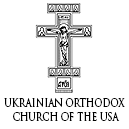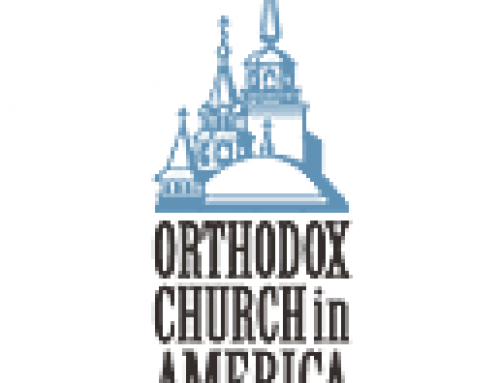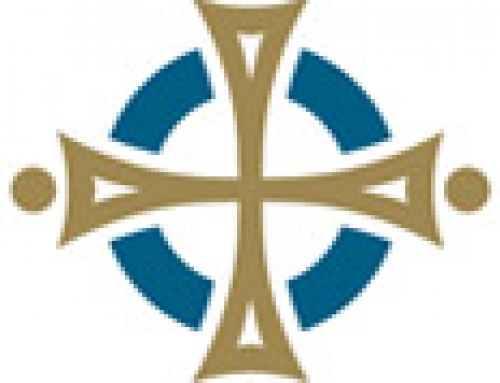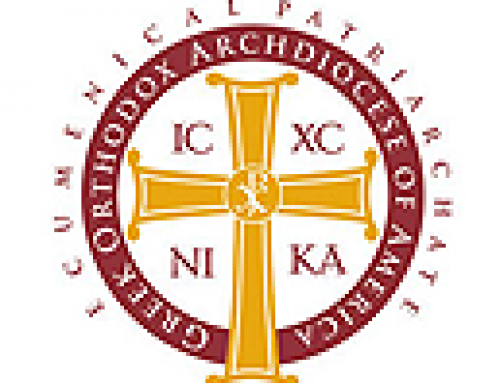This post was originally published on this site
Once again, God, in His great mercy, has brought us to the threshold of another Great Lent. Once again, we hear the words “Let us set out with joy upon the season of the Fast, and prepare ourselves for spiritual combat. Let us purify our soul and cleanse our body. As we fast from food, let us abstain also from every passion.” How do we respond?
For many of us, perhaps, living in modern American culture of the 21st century, the words “joy” and “Fast” are two that we would never pair up together. We have become accustomed to indulging in every pleasure, gratifying every urge – we internalize the attitude that the world exists for me and for my needs, that “my” money can be spent however I please, that “my” time can, and should, be spent only in the pursuit of my enjoyment – the idea of limits, of self-control, of abstinence, even of sharing – is something that we find distasteful, if not downright dangerous and even physically and psychologically unhealthy. Certainly not joyful.
For many of us, perhaps, Great Lent is seen as an outside obligation imposed upon us by the Church, something that temporarily interrupts the rhythm of our lives, without really being integrated into our identity. If we live with this attitude, the next 40 days of Great Lent and then Holy Week will certainly NOT be a time of joy. Yet, if we can perceive this time for what it is – a blessed opportunity given to us for us to follow the example of the Prodigal Son – for us to come to our senses and return to the Father, then we will experience the real joy the hymnographer wrote about. Great Lent is chance for us to “recalculate”, in the words of the GPS units we so often rely upon, and get ourselves headed back in the right direction.
This implies, of course, that we must admit we have been going in the wrong direction. We must have the moral and spiritual maturity to look ourselves in the mirror and acknowledge that our choices and decisions have drawn us away from God, and that we need to change direction. Quite simply, we must REPENT. We must lay aside our excuses and self-justifications, and realize, hopefully aided and inspired by our attendance at the Great Canon services this week, that we are sinners. We need to confess our mistakes and sins, our missed opportunities, and begin anew. We need to experience the joy of God’s forgiveness, and offer forgiveness to those close to us. And then to aid and encourage us during this Great Lent, we have the three great nutrients of spiritual growth and renewal: prayer, fasting and almsgiving.
Prayer is certainly a chief feature of Great Lent. Think about it – don’t we all want to spend time with the ones we love? That’s what prayer is – spending time with The One we love, and Who loves us. There will be so many opportunities for us to gather together in corporate prayer and worship in our Parishes as faithful sons and daughters of our Holy Orthodox Church – the Great Canon services this first week, which set before us the myriad Scriptural examples of repentant sinners; the beautiful Liturgies of the Presanctified Gifts which nourish our souls while our bodies fast; the poignant poetry of Akathists to the Passion of Christ or to the Most-Holy Birthgiver of God; and, the Soul Saturdays, which give us the opportunity to remember in prayer the souls of our loved ones who have gone before us. Let’s make the effort to attend, and not just as an afterthought, but let each day’s service be the priority – let’s arrange the rest of our day around it, to assure we have the time and physical and mental energy to actively participate. And yet we cannot neglect private prayer, either. The supreme Lenten prayer is, of course, the Prayer of St. Ephraim, and we can incorporate this into our daily prayer rule (or if, as part of our Lenten introspection, we realize we don’t have a daily prayer rule, we can develop one, with the guidance of our Spiritual Father). We can pray waiting at the bus stop, we can pray sitting at a red light (but never while driving!), we can pray waiting in line at the supermarket, and what we just might find out, is that we don’t want to stop when Great Lent is over! Glory to God!
For many of us fasting is the main feature of Great Lent; and yet, do we have the proper understanding of fasting? Too often, we fixate on ingredients. Simply put, the fasting guidelines of our Orthodox Faith call for a vegan lifestyle during the Great Lent – no meat or meat by-products, no dairy, eggs, or fish which have bones or scales while alive. Maybe, this sounds intimidating. Quite frankly, it is easier now (and even trendier now) to keep this kind of fast than ever before, given the food options available to us. (Sorry folks, there is no “senior citizen” exemption in Orthodoxy.) There may be of, course mitigating medical factors and in such situations one should consult with his or her Spiritual Father. And yet many will correctly question, how can simply changing our diet benefit us spiritually? It can’t. If our fasting becomes a cause of pride, it becomes a sin. Along with monitoring what we are eating, we must struggle to maintain the correct internal attitude. Otherwise, Great Lent is just a 40-day diet. As we limit and simplify our physical intake of food, we are called to live in humility, with a greater awareness of our dependence on God; we are reminded that “man shall not live by bread alone, but by every word that proceeds from the mouth of God”. We remember that Adam’s original transgression against God, which resulted in corruption and death entering in to the perfection of God’s creation, came about as a result of eating something which was not permitted, because Adam lost humility and decided to overrule God Himself. And, while we humble ourselves through fasting, through simplifying our menus, this frees up resources which can be put to better use.
This brings us to the third component of a responsible observance of Great Lent: almsgiving. The 40 days of Great Lent are approximately one-tenth of the year- a tithe; we know that God has always called His faithful sons and daughters to offer back a portion of the gifts He has entrusted to us. We can use these days to offer back to the Lord the money we save through fasting and limiting frivolous expenditures– to His Church through our Parishes, through our Orthodox charitable agencies such as IOCC, FOCUS, OCMC, OCPM, Zoe for Life, the St. Andrew’s Society; even through secular charities if they have values compatible with our Faith. Last Sunday we were reminded of the crucial importance of feeding the poor, clothing the naked, caring for the sick, and visiting the imprisoned. We can do this indirectly through financial support (the “easy” way), or directly, by offering our time. Let’s make the effort to turn off the television, step away from the computer and social media, and use that time to visit a nursing home, or home-bound parishioners, to volunteer at a soup kitchen or shelter, to share God’s love and mercy with the world around us. This way, we add responsible stewardship of our treasures and time into our Lenten equation.
While we refer to today as Cheesefare Sunday and Forgiveness Sunday, a more subtle Liturgical theme for this day is the casting out of Adam (and Eve!) from Paradise. The Church calls on us to realize that as children of Adam and Eve, we are living outside of where we are meant to be – the existence we experience as normal is, in fact, abnormal. God did not create us to live out of Paradise. We are exiles. Great Lent is a blessed opportunity for us to return home to the overflowing love and mercy of the Father’s embrace. Through prayer, fasting, almsgiving and the Grace of God, we can return. If we can accept this as our calling, we really will be filled with joy as we journey through this Great Lent.
A blessed Great Lent to you all.
Fr. Michael Kochis




